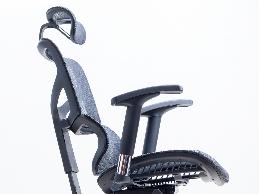On This Page
About Cataplexy
Cataplexy is the sudden loss of voluntary muscle tone or temporary paralysis that is often triggered by extreme emotion, such as laughter or fear. Cataplexy by itself is considered a rare disease. Most episodes are short in duration, lasting a few seconds up to five minutes. These episodes tend to have few, if any, residual effects. Some people with narcolepsy can have cataplectic attacks almost daily, while there are some people with narcolepsy that have never experienced cataplexy.
During a cataplectic attack the person will remain conscious; however, the person may experience jaw dropping, which can cause speech limitations, or eyelids drooping, which can interfere with vision. Other symptoms may include balance issues, upper extremity weakness, and/or collapsing.
While a cataplectic attack is usually very short in duration and leaves no residual effects, there may be symptoms that would require workplace accommodations. Some of the most common limitations stemming from a cataplectic attack are weakened speech, vision issues, trouble balancing, upper extremity weakness, and/or collapsing.
Cataplexy and the Americans with Disabilities Act
The ADA does not contain a definitive list of medical conditions that constitute disabilities. Instead, the ADA defines a person with a disability as someone who (1) has a physical or mental impairment that substantially limits one or more "major life activities," (2) has a record of such an impairment, or (3) is regarded as having such an impairment. For more information about how to determine whether a person has a disability under the ADA, see How to Determine Whether a Person Has a Disability under the Americans with Disabilities Act Amendments Act (ADAAA).
Accommodating Employees with Cataplexy
People with cataplexy may develop some of the limitations discussed below, but seldom develop all of them. Also, the degree of limitation will vary among individuals. Be aware that not all people with cataplexy will need accommodations to perform their jobs and many others may only need a few accommodations. The following is only a sample of the possibilities available. Numerous other accommodation solutions may exist.
Questions to Consider:
- What limitations is the employee experiencing?
- How do these limitations affect the employee and the employee’s job performance?
- What specific job tasks are problematic as a result of these limitations?
- What accommodations are available to reduce or eliminate these problems? Are all possible resources being used to determine possible accommodations?
- Once accommodations are in place, would it be useful to meet with the employee to evaluate the effectiveness of the accommodations and to determine whether additional accommodations are needed?
- Do supervisory personnel and employees need training?
Accommodation Ideas:
Situations and Solutions:
The following situations and solutions are real-life examples of accommodations that were made by JAN customers. Because accommodations are made on a case-by-case basis, these examples may not be effective for every workplace but give you an idea about the types of accommodations that are possible.
JAN Publications & Articles Regarding Cataplexy
Publications
Consultants' Corner Articles
Articles
Blog Posts
- No Blog Posts available for Cataplexy









